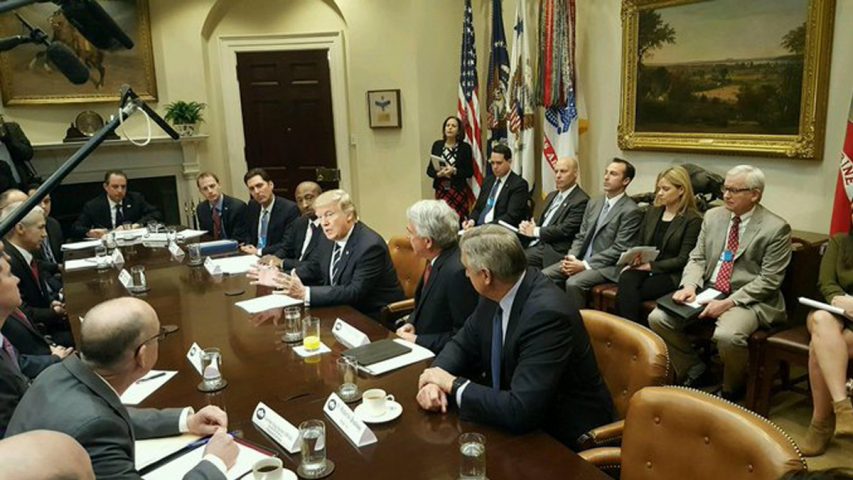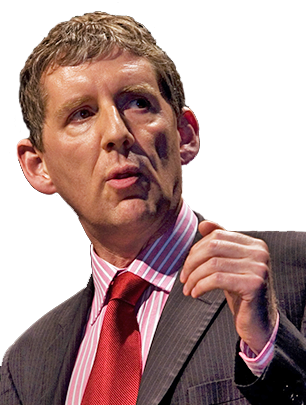- Have any questions? Contact us!
- info@dr-rath-foundation.org

Micronutrient synergy approach suppresses growth of colon cancer
January 26, 2017
Visions For A World Of Health, Peace And Social Justice
February 9, 2017Will Donald Trump Make Friends With Big Pharma Or Keep His Election Promise?

Donald Trump meeting with senior drug company executives in the Oval Office at the White House, 31 January, 2017.
Image: @POTUS via twitter.com
A few days prior to his inauguration as U.S. president, Donald Trump made headlines when he said that his country’s drug industry “has been disastrous.” Accusing American pharma companies of getting away with “murder,” he asserted that “people die because they can’t get the prescription drugs they need.” Almost immediately, drug industry stock prices fell and the internet was flooded with claims that Trump is supposedly now leading the fight against Big Pharma.
In a meeting held in the Oval Office on January 31, however, the new president took a somewhat different approach and assured an assembled group of senior drug company executives that they had “done a terrific job over the years.” In return for bringing drug production back to the U.S., Trump told them, his administration would reduce regulations affecting pharma companies and lower their taxes. Predictably, stock prices of most of the firms present subsequently soared.
For a man said to be opposed to Big Pharma, the impression Trump gave in this Oval Office meeting was that he would do everything possible to help it. Openly stating that U.S. drug companies have produced “extraordinary results” for the country, he said his administration’s focus would be on “accelerating cures” and making the drug approval process “much faster.”
During the meeting, Trump went to great lengths to assure drug executives he would “get rid of a tremendous number of regulations” affecting their industry. These would be cut, he said, “at a level that nobody’s ever seen before.” Promising them they would “do great” under his administration, he committed to lowering pharma taxes “big league.”
Clearly warmed by Trump’s words, the drug industry executives seated around the table talked enthusiastically about “cancer cures” and eradicating diseases, saying that reducing regulations and lowering taxes would really help them.
But let’s not be fooled here. While the media headlines for this story centered around Trump’s supposed goal of lowering drug prices, the fact is that pharmaceutical companies will not go along with anything that would negatively affect their profits. As components of a trillion-dollar-a-year industry, drug corporations will not tolerate a dramatic mass lowering of their prices. If threatened, they will use their army of media supporters, lobbyists, and politicians to destroy anyone undermining their economic power.

True solutions to health can’t be built on enforcing the status quo and its outdated approaches that, time and again, have already proven ineffective.
True solutions to health can’t be built on enforcing the status quo and its outdated approaches that, time and again, have already proven ineffective. Trump’s focus should therefore shift towards addressing the primary cause of chronic diseases – micronutrient deficiencies – and to building a prevention-oriented and effective-based system of medicine. This means medicine that does not merely mask symptoms, but eradicates diseases by eliminating their root causes. Only nutritional and Cellular Medicine approaches can assure that diseases can truly be eradicated.
However, if the Trump administration does nothing in this area, diseases will continue and expand – thus assuring that the drug industry will not only survive, but thrive. Access to effective and affordable healthcare is desired by all peoples of the world despite their political, religious, cultural, and philosophical differences. Many Trump voters still rely on his electoral promise of providing such healthcare and lowering drug prices. If he truly does intend to keep this promise, this meeting wasn’t a good way to start.




